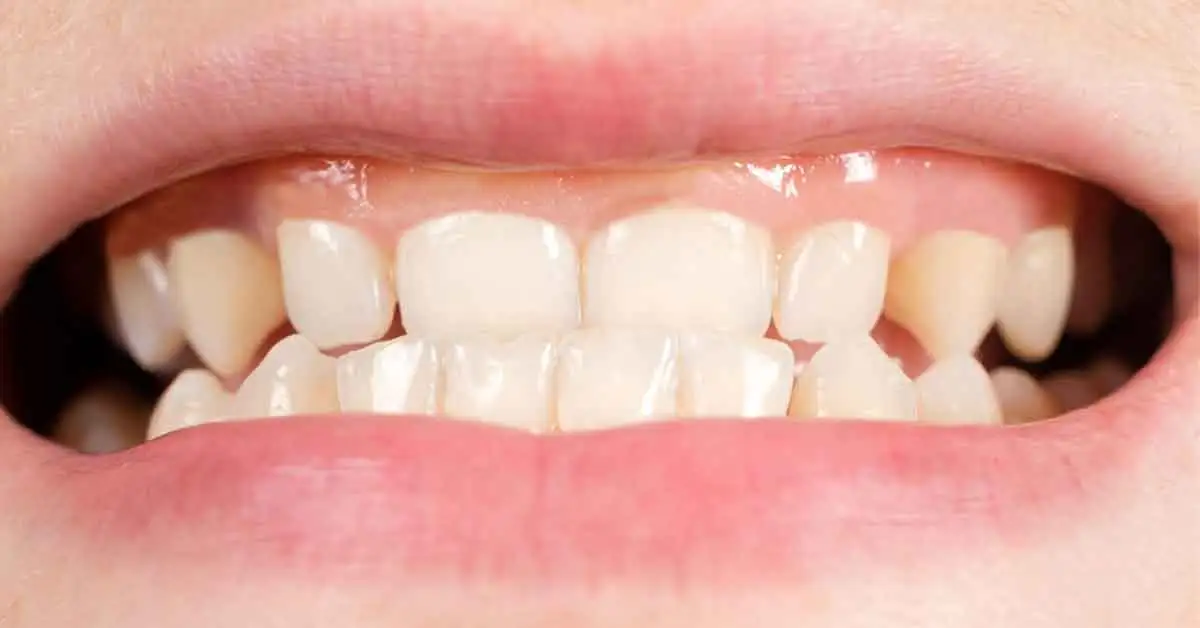Table of Contents
ToggleDo you grind your teeth unconsciously at night? Do you wake up with jaw pain or headaches in the morning? This problem may indicate a condition known as bruxism, commonly referred to as Gnashing of Teeth or teeth clenching. So, is it possible to completely prevent this condition? Let’s take a closer look.
What is Bruxism? What Causes It?
Bruxism is the unconscious clenching or grinding of teeth. This condition, which usually occurs during sleep at night, can also be seen in some people during the day. Stress, anxiety, sleep disorders, and jaw structure abnormalities are the main factors that trigger Gnashing of Teeth behavior.
The main causes of bruxism are as follows:
- Intense stress and emotional pressure
- Sleep apnea or other sleep disorders
- Irregular tooth alignment
- Caffeine and alcohol consumption
- Certain types of antidepressants
What Are the Symptoms of Teeth Grinding?
Many people are unaware that they grind their teeth, so symptoms often appear with other complaints. If not detected early, it can cause permanent damage to the teeth.
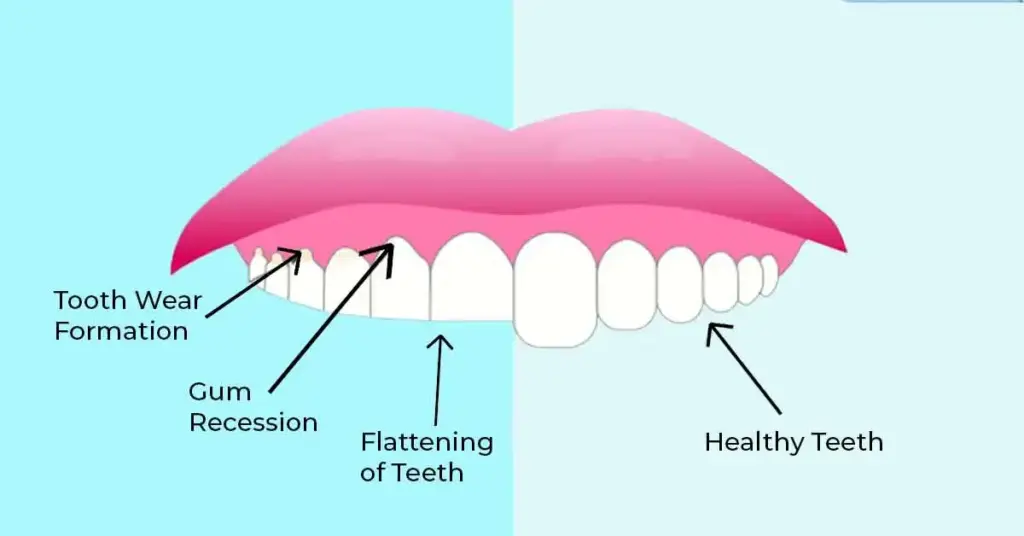
Common symptoms of teeth grinding:
- Morning jaw, head, or facial pain
- Wear and cracks in tooth enamel
- Increased tooth sensitivity
- Pain around the ears (even if there are no ear problems)
- Decreased sleep quality
- Gum recession or bleeding
If you have any of these symptoms, it is important to consult a dentist.
Can teeth grinding be treated?
Yes, Gnashing of Teeth can be treated, and different methods can be used in this process. The treatment approach is determined on an individual basis and shaped according to the underlying cause.
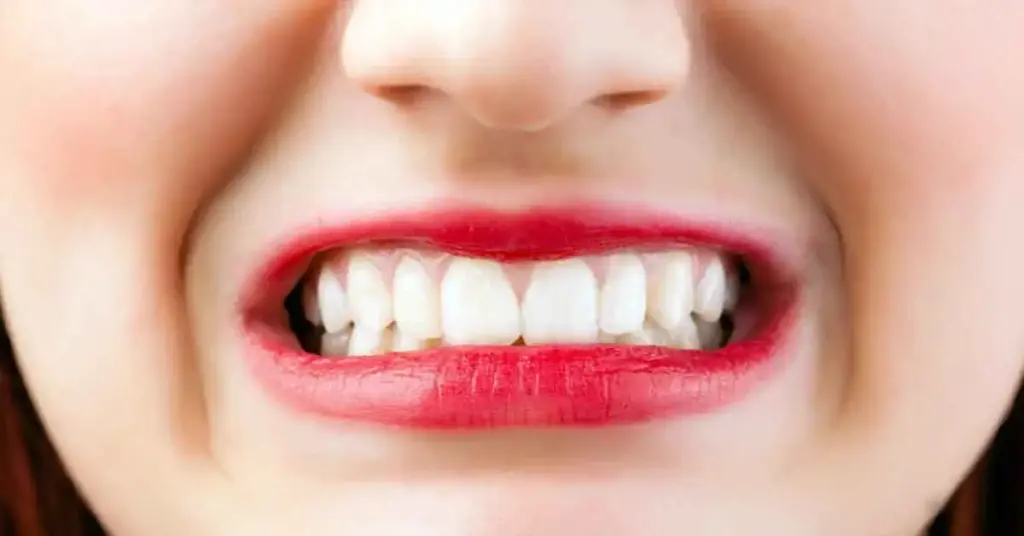
Commonly used methods for treating bruxism:
- Night Guard (Splint): Special devices that protect the teeth during sleep.
- Stress Management: Reducing stress through methods such as psychological support, yoga, and meditation.
- Physical Therapy and Exercises: Practices aimed at relaxing the jaw muscles.
- Medication: Use of muscle relaxants or short-term anxiolytics.
- Botox Treatment: A method commonly used in the treatment of teeth grinding to suppress excessive muscle activity.
What Can Be Done to Prevent Teeth Grinding?
Gnashing of Teeth behavior can sometimes be difficult to eliminate completely, but it is possible to reduce and control it. Some changes and habits in daily life can greatly contribute to the treatment process.
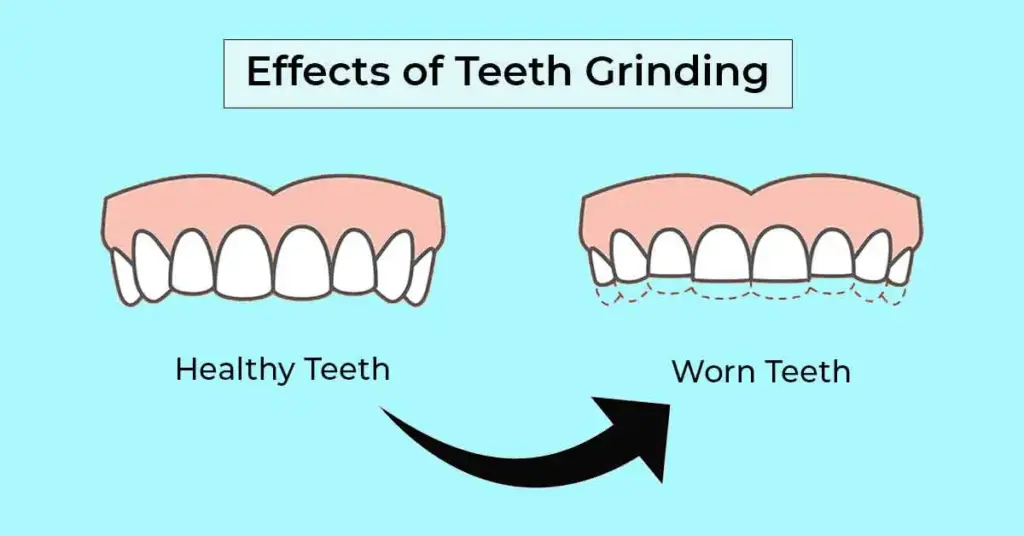
Precautions you can take include:
- Monitor your daily stress levels and seek professional help if necessary.
- Regulate your sleep routine and reduce screen exposure.
- Avoid hard foods (nuts, ice, etc.).
- Keep your jaw in its natural position when your mouth is closed (your tongue should touch the roof of your mouth, and your teeth should not touch each other).
- Reduce your intake of caffeine, nicotine, and alcohol.
- Try doing muscle relaxation exercises or applying a warm compress before going to bed.
Why is expert support important?
Gnashing of Teeth is not a problem that will go away on its own. If left untreated, it can seriously affect both dental health and quality of life. Therefore, it is very important to consult a dentist as soon as you notice the symptoms, both for early diagnosis and to prevent permanent damage.
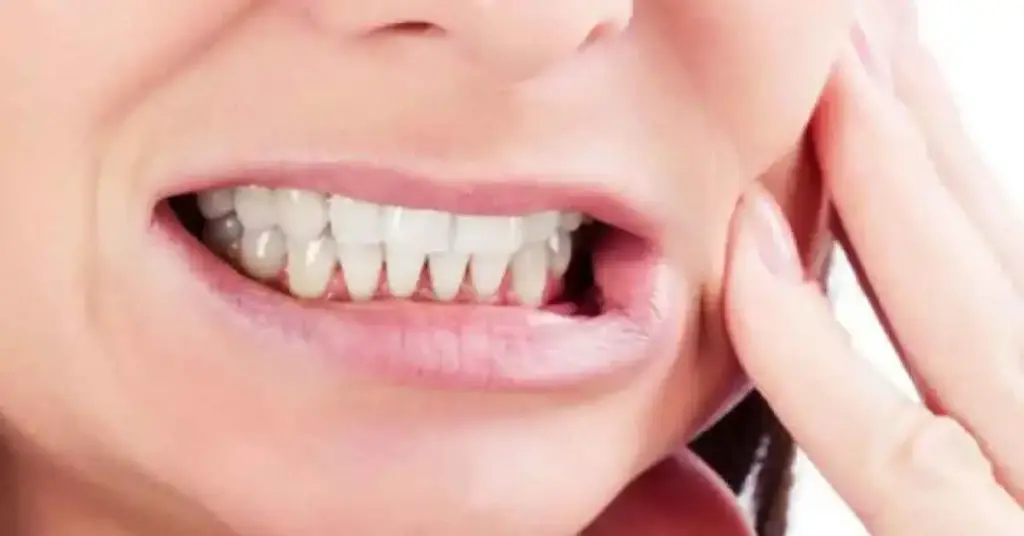
Our dental clinic offers personalized treatment plans for patients diagnosed with bruxism. You can get support from our experts to protect your teeth and jaw health.
Teeth clenching and Gnashing of Teeth are behaviors that can be completely controlled. With appropriate treatment methods and lifestyle changes, bruxism can be effectively managed. If you would like support in this regard, please contact our clinic.

